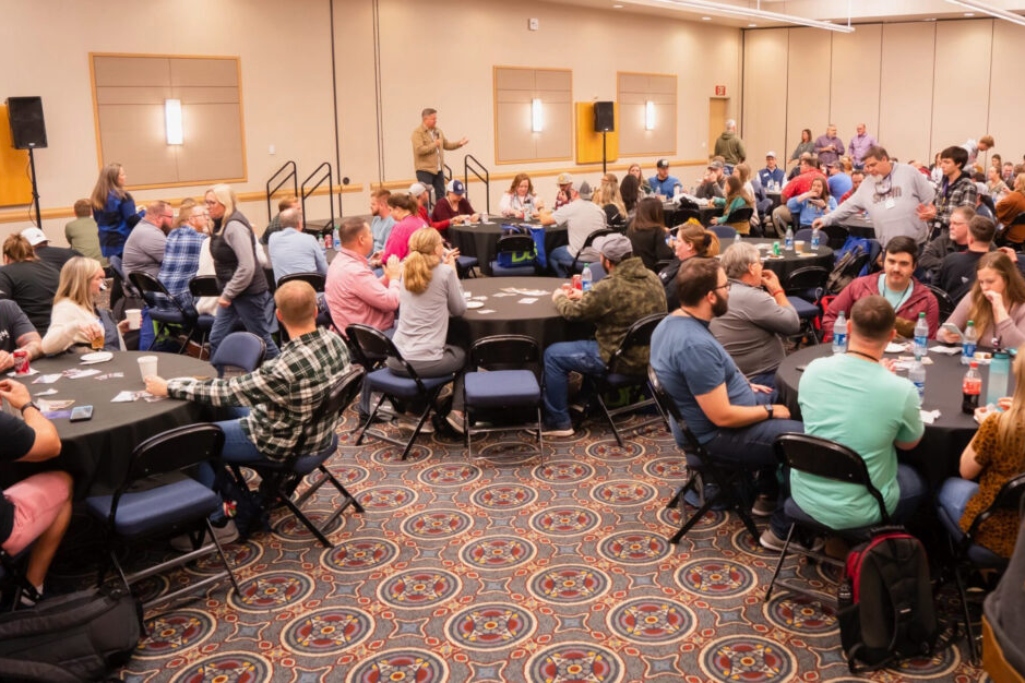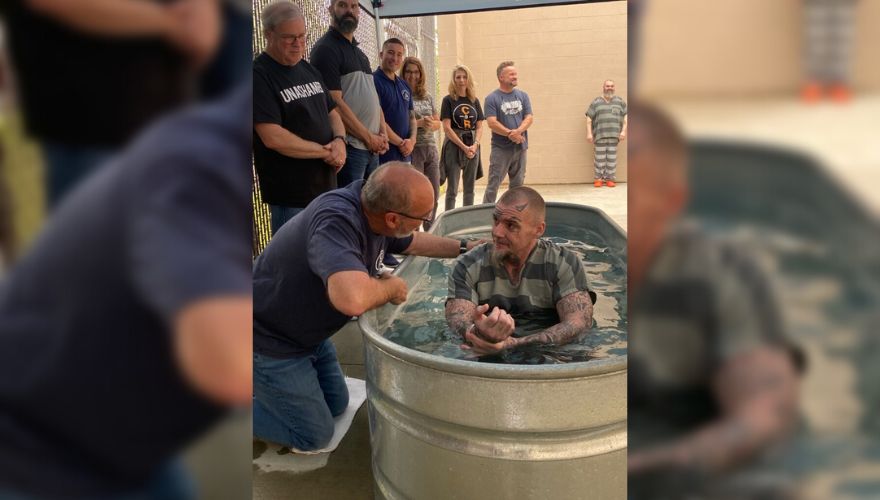
Chris Trent, Next Gen catalyst for the Georgia Baptist Mission Board, talks to Georgia student ministry leaders at last year's Conclave.
NASHVILLE (BP) — The new year brings new beginnings, but a lot needs to be said for consistency. Ministry needs to be face-to-face as much as possible and Gospel-centric, not activity based, veteran youth leaders say.
Due to scheduling conflicts where the church often loses out to sports and other activities, it’s important to maintain contact with students as much as possible, said Jonathan Meyer, a veteran student ministry leader who started in 1994 and is currently senior high pastor at Grace Church in Des Moines.
In 2012, Grace Church switched to a more Gospel-based model that has less emphasis on large-scale activities. Discipling relationships took shape with mostly one-on-one groupings but extending to one-to-three. Currently, the church has 88 people connected in the program, with parents as well as students discipling others.
“We’ve seen the model go crazy for us,” Meyer said.
Chris Trent, whose 30-plus years of student ministry led to his current role as Next Gen catalyst for the Georgia Baptist Mission Board, cited a 2020 study by Springtide Research Institute that addressed young people’s desire to have a mentor.
“They need to feel cared for before they can be receptive to others in their life,” Trent said. “Only 50 percent of young people who report having no mentors say their life has meaning. That number rises to 70 percent when there is at least one mentor and 86 percent with two to four.”
When there are five or more mentors involved, he added, 91 percent of young people say they feel their life has meaning and purpose.
For Meyer, who also serves as a youth ministry coach with the Baptist Convention of Iowa, being that person of influence can mean taking tried-and-true steps as well as new ones.
“No. 1, you have to talk to them face-to-face,” Meyer said. “If you’re not talking to them, you don’t have a relationship with them. No. 2, follow them on Instagram or maybe even Snapchat. That’s their language. If you’re not up on what they’re doing, they’re not up on you.”
Most important of all, Meyer said, “Love them from the heart. At the end of the day, they’re smart and know what you’re doing. They see right through it. And they’ll be attracted to it.”
The stakes can hardly be higher, he added.
“If we’re not focusing on the next generation, pretty soon that next generation is not gonna focus on Christ,” he said. “We’ve got to be careful that we model, demonstrate, and live out Christ’s disciple-making strategy in our churches so our students can see Jesus in everyday life.”
Meyer is also the founder of Ignite, a conference that provides biblical training for students, youth workers and volunteers. In addition, he helps coordinate periodic luncheons for youth leaders in the state that are hosted by both Southern Baptist and non-Southern Baptist churches. The first one of 2024, hosted at Grace and paid for by Ignite, will be Jan. 11.
That time is spent connecting, teaching and praying.
“As we pray together, we’ve gotten to the point where we’re honest and open enough,” he said. “They know me and that I don’t have an agenda. I’ve been doing this for 20 years and just want to get other youth guys together.”
What worked, what didn’t
That kind of honest reflection among peers is urged on Thursday mornings during Unwind, an online gathering of Georgia Baptist student ministry leaders.
“Things [from Wednesday night activities] are fresh on their mind,” Trent said.
Participants are asked to share something that went well the night before as well as something that flopped, or at least didn’t go as well as hoped. The third discussion point comes from “anyone wanting to pick the brain of the group.”
On the other end of the spectrum is Conclave, an annual large-scale student ministry training event, to be held this year in Chattanooga Jan. 18-20. The event is organized by leaders in the Baptist state conventions of Georgia, Alabama, Tennessee, South Carolina, North Carolina, Kentucky, Mississippi, Louisiana and Indiana.
In addition to speakers and corporate worship, breakout sessions address areas of evangelism, discipleship and calling out the called. Others discuss matters such as social media and navigating the transgender revolution.
Help wanted
While only 10 percent of Gen Z – those born between 1997-2012 – regularly engage with Scripture, there is nevertheless still a significant interest in the Bible. What’s more, there is a clear desire to learn more about Jesus.
It’s a weight that can’t be borne by church staff alone.
Volunteers are crucial not just for teaching but being available throughout the week. The Gospel can be taught in a church classroom, but showing up for a student’s midweek game gives it legs.
The Youth Ministry Podcast for Volunteers, pretty clear in its title to its intent, is in its third season hosted by Trent. Episodes are kept to 20-25 minutes, with the first one of 2024 dropping next week.
“Ultimately, we’re trying to create network opportunities throughout the state for leaders and volunteers,” Trent said. “It’s what I’m focused on more than anything.”
(EDITOR’S NOTE – Scott Barkley is national correspondent for Baptist Press.)


